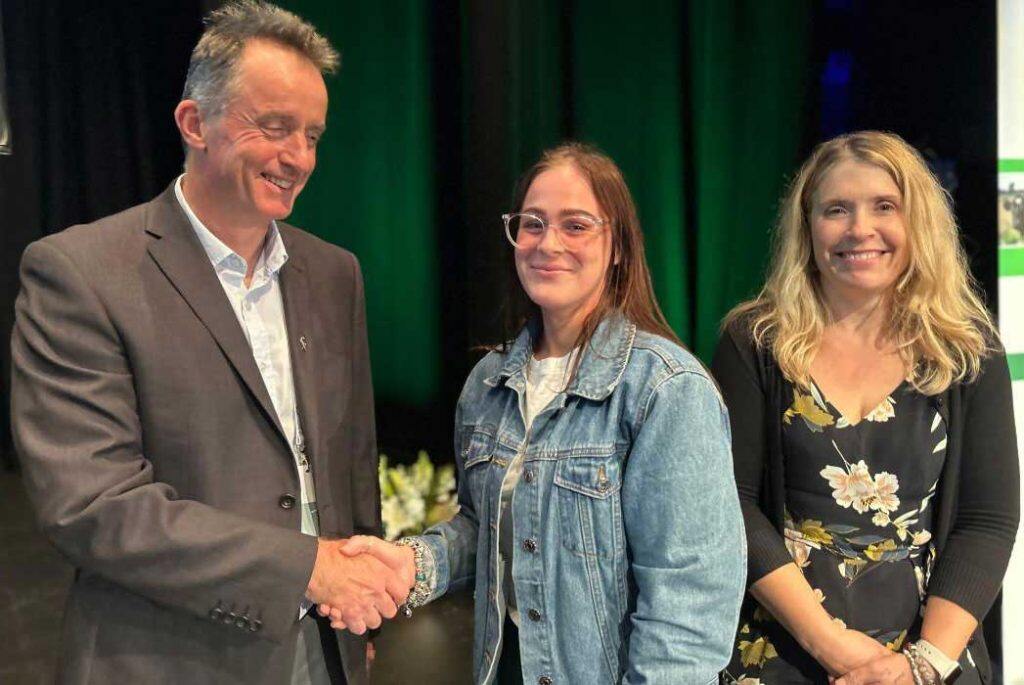Te Whare Wānanga o Waitaha | University of Canterbury PhD student Sarah Sale gave an award-winning presentation on myrtle rust at the recent International Conference on Biological Invasions (ICBI).


Over 400 delegates from Australia, the Pacific and China gathered in Ōtautahi Christchurch earlier this month to discuss effective responses to global challenges and threats that invasive alien species present to biodiversity, ecological systems, and food production and security in terrestrial, freshwater and marine ecosystems.
Following her talk about the impacts of myrtle rust on different species, the Biochemistry doctoral candidate won the award for Outstanding Student Oral Presentation.
“Myrtle rust causes bright yellow pustules and infects over 500 different species including mānuka, pōhutukawa, rātā and feijoa,” Sale said. “We’re getting closer to artificial infection in the laboratory so that we can trial methods for its control.”
“Sarah’s presentation stood out as she had the visual and delivery excellence we were looking for,” Hayley Ridgway from Plant and Food Research, who was adjudicator of the eight judges, said.
At the welcoming ceremony, Tumu Tuarua Rangahau | Deputy Vice-Chancellor Research Professor Ian Wright said, “New Zealand and Australia are world leaders in biosecurity. To remain that way, we must continue to invest in inter-disciplinary research”.
Alongside Sarah, UC PhD students Ben McEwen (Computer Engineering), Hugh Benson (Psychology) and Leann Vinson (Biology) attended the conference thanks to a UC Biosecurity Innovations (UCBI) grant.
“We had 17 delegates from UC attend, four of whom were students,” Director of UCBI Associate Professor Steve Pawson said. “It’s important that our students are aware of the global issues biosecurity creates”.



































